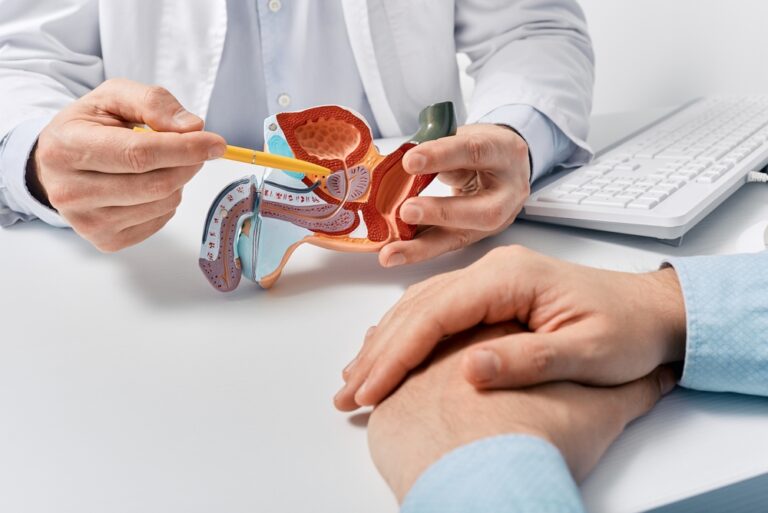How to Boost Your Libido by Loving Your Body and Yourself

Understanding the connection between self-esteem and libido

Low self-esteem can have a significant impact on both men and women’s libido. When individuals feel insecure or have negative feelings about their bodies, it can lead to a decrease in sexual desire and performance. Research has shown that self-esteem is closely linked to sexual satisfaction, and individuals with higher levels of self-esteem tend to have a healthier and more fulfilling sex life.
One possible explanation for this connection is that low self-esteem can lead to feelings of inadequacy or self-doubt in the bedroom. When individuals don’t feel confident in their bodies or their sexual abilities, it can create anxiety and inhibit their sexual response. Additionally, low self-esteem may also affect communication and intimacy within a relationship, further contributing to a decline in sexual desire. Therefore, it is important to address and work on improving self-esteem to enhance one’s libido and overall sexual satisfaction.
The impact of negative body image on your sexual desire

Negative body image can have a significant impact on your sexual desire. When individuals feel dissatisfied or displeased with their own bodies, it can lead to feelings of self-consciousness and low self-esteem, which can subsequently diminish their interest in engaging in sexual activities. Research has shown that individuals with negative body image may experience decreased sexual satisfaction, difficulty in achieving orgasm, and an overall decrease in sexual desire.
Several factors can contribute to this connection between negative body image and diminished libido. Society’s portrayal of idealized body standards, particularly through media and advertising, can create unrealistic expectations and distort perceptions of one’s own body. This can lead to feelings of inadequacy and self-judgment, further impacting sexual self-esteem. Additionally, negative body image may also lead to feelings of shame or embarrassment, making individuals less likely to engage in intimate situations and hindering their ability to fully enjoy sexual experiences.
It is important to recognize the impact that negative body image can have on sexual desire and overall sexual well-being. By understanding the connection between body image and libido, individuals can take proactive steps to address and improve their body image, thereby enhancing their sexual desire and satisfaction.
Embracing self-acceptance and self-love as a pathway to increased libido
Self-acceptance and self-love play a crucial role in enhancing libido and overall sexual well-being. When individuals have a positive perception of themselves and embrace their unique qualities, they are more likely to experience heightened levels of desire and satisfaction in their intimate encounters.
Research has shown that individuals who have a healthy sense of self-esteem are more comfortable with their bodies and are less likely to experience body image concerns that can negatively impact their sexual desire. By fostering self-acceptance, individuals can develop a positive body image, allowing them to fully embrace their physicality and experience pleasure without inhibition.
Moreover, self-love not only encompasses a positive body image but also involves nurturing a deep sense of self-worth and self-compassion. By recognizing their own value and treating themselves with kindness and respect, individuals are better able to prioritize their sexual needs and desires. This self-care mindset not only enhances sexual desire but also allows individuals to communicate their preferences and boundaries effectively, fostering healthier and more fulfilling intimate relationships.
• Individuals with a healthy sense of self-esteem are more comfortable with their bodies
• Positive body image leads to increased sexual desire and satisfaction
• Self-love involves nurturing self-worth and self-compassion
• Treating oneself with kindness and respect enhances prioritization of sexual needs
• Effective communication of preferences and boundaries fosters healthier intimate relationships

Identifying and challenging self-critical thoughts about your body
Identifying and challenging self-critical thoughts about your body is an important step towards improving your libido. Negative body image can have a significant impact on your sexual desire, causing you to feel insecure and self-conscious. These thoughts can stem from societal pressures, media influence, or personal experiences.
To begin the process of identifying and challenging these self-critical thoughts, it’s important to pay attention to your internal dialogue. Notice when negative thoughts arise and take note of the triggers that may be causing them. It may be helpful to keep a journal to track these thoughts and emotions, allowing you to gain a deeper understanding of your thought patterns.
Once you have identified these self-critical thoughts, challenge their validity by questioning their accuracy. Ask yourself if there is evidence to support these negative beliefs about your body. Often, we are our own harshest critics and our perceptions may not align with reality. Remind yourself of your unique qualities, strengths, and the aspects of your body that you appreciate. By practicing self-compassion and shifting your perspective, you can begin to challenge and reframe these negative thoughts, fostering a more positive body image and ultimately enhancing your libido.
Remember, addressing self-critical thoughts about your body requires time and patience. It is a process of self-discovery and self-acceptance. By consciously working towards identifying and challenging these thoughts, you can nurture a healthier relationship with your body and cultivate a more fulfilling and satisfying sexual experience.
Exploring the role of mindfulness in enhancing sexual desire
Mindfulness, the practice of being fully present in the moment, has gained popularity in recent years for its numerous benefits to mental and physical well-being. But did you know that mindfulness can also have a positive impact on sexual desire? Research suggests that incorporating mindfulness techniques into your daily routine can enhance sexual desire and satisfaction.
One way mindfulness can enhance sexual desire is by reducing stress and anxiety. Stress and anxiety are known mood killers, and they can significantly diminish your sexual desire. By practicing mindfulness, you can learn to quiet the mind and alleviate these negative emotions, allowing you to fully engage in and enjoy sexual experiences.
Additionally, mindfulness can help you become more attuned to your body and its sensations. By paying close attention to the present moment, you can heighten your awareness of physical sensations during sexual activities. This increased awareness can lead to a greater sense of pleasure and desire.
Furthermore, mindfulness can improve your overall sexual communication and intimacy with your partner. By being fully present during intimate moments, you can better connect with your partner and enhance emotional and physical intimacy. This, in turn, can lead to a stronger desire for sexual experiences.
Incorporating mindfulness into your routine can be as simple as setting aside a few minutes each day for meditation or engaging in mindful breathing exercises. There are also various apps and online resources available that can guide you through mindfulness practices. So why not give it a try? By exploring the role of mindfulness in enhancing sexual desire, you may discover a whole new level of intimacy and satisfaction in your sexual experiences.
Certainly! Here’s information on the role of mindfulness in enhancing sexual desire presented in a table format:
| Exploring the Role of Mindfulness in Enhancing Sexual DesireKey Aspects and Benefits of Mindfulness | |
|---|---|
| Definition of Mindfulness | – Concept: Mindfulness involves being fully present and attentive to the current moment without judgment. |
| – Focus: It encourages awareness of sensations, thoughts, and emotions. | |
| Mindfulness in the Context of Sexual Desire | – Enhanced Awareness: Mindfulness helps individuals connect with their bodies, sensations, and desires. |
| – Reduced Distractions: By focusing on the present, it minimizes external distractions that may affect desire. | |
| Benefits for Sexual Desire and Intimacy | – Increased Sensuality: Mindfulness can heighten sensitivity to touch, taste, and other sensual experiences. |
| – Improved Emotional Connection: Enhances emotional intimacy and connection with a partner. | |
| Mindful Breathing Techniques | – Purpose: Deep, intentional breathing can help individuals stay present, reduce anxiety, and enhance relaxation. |
| – Practice: Incorporate mindful breathing during intimate moments. | |
| Body Scan Meditation | – Purpose: A practice involving mentally scanning the body, fostering awareness of physical sensations. |
| – Application: Can be used to connect with sensations and increase body awareness during intimacy. | |
| Mindful Touch and Sensual Awareness | – Techniques: Focus on the sensation of touch, exploring the textures and feelings without judgment. |
| – Connection: Enhances the connection between partners during physical intimacy. | |
| Mindful Communication with Partner | – Open Dialogue: Mindfulness encourages open and non-judgmental communication about desires and preferences. |
| – Empathy: Supports understanding and empathy, strengthening the emotional bond. | |
| Reducing Performance Anxiety | – Approach: Mindfulness helps shift the focus from performance concerns to the present moment experience. |
| – Relaxation: Reduces anxiety and tension, creating a more relaxed environment. | |
| Mindfulness-Based Interventions (MBIs) | – Examples: Mindfulness-based therapies like Mindfulness-Based Stress Reduction (MBSR) or Mindfulness-Based Cognitive Therapy (MBCT). |
| – Benefits: These programs can have positive effects on overall well-being, including sexual satisfaction. | |
| Mindfulness in Daily Life | – Integration: Practicing mindfulness in daily activities can contribute to an overall sense of presence and well-being. |
| – Sustainable: Regular mindfulness practice may have cumulative effects on sexual desire over time. | |
| Potential Impact on Desire Discrepancies | – Alignment: Mindfulness may help partners align their desires and understand each other’s needs without judgment. |
| – Connection: Fosters a shared experience and deepens emotional connection. |
Cultivating a positive body image through self-care practices
Self-care practices play a crucial role in cultivating a positive body image, which in turn can have a profound impact on your libido. When you prioritize self-care, you are essentially telling yourself that you are worthy of love and attention. This can help to counteract negative body image concerns and foster a healthier relationship with your own body.
One important aspect of self-care is nourishing your body with wholesome, nutritious foods. A balanced diet rich in fruits, vegetables, lean proteins, and whole grains can not only improve your overall health but also contribute to the vitality and functioning of your sexual organs. Additionally, staying hydrated is essential for maintaining optimal bodily functions, including those related to sexual desire. Engaging in regular physical activity, such as moderate exercise or yoga, can further enhance your body image by promoting strength, flexibility, and a sense of accomplishment. Remember, self-care is a journey, so be patient with yourself as you develop habits that support a positive body image and a thriving libido.
Nurturing a healthy relationship with food and exercise for improved libido
Maintaining a healthy relationship with food and exercise is not only beneficial for overall well-being but can also have a positive impact on libido. A balanced and nutritious diet plays a crucial role in supporting hormonal balance and ensuring optimal sexual function. A diet rich in antioxidants, vitamins, and minerals can promote blood flow, enhance energy levels, and increase the production of sex hormones, thereby enhancing libido.
Incorporating certain foods into your diet can specifically benefit your sexual health. For instance, foods like dark chocolate, avocados, and watermelon are known to increase nitric oxide production in the body, which helps relax blood vessels and improve blood flow to the genital area. Additionally, foods rich in zinc, such as oysters, pumpkin seeds, and lean meats, can support testosterone production and boost sexual desire. It is important to consult with a healthcare professional or a registered dietitian to create a personalized diet plan that meets your specific nutritional needs and goals.
Exercise is another crucial aspect of nurturing a healthy relationship with your body and enhancing libido. Regular physical activity improves cardiovascular health, increases blood circulation, and stimulates the production of endorphins, which are mood-enhancing hormones. Engaging in moderate-intensity exercises like brisk walking, swimming, or cycling for at least 30 minutes a day can lead to improved sexual function and desire. It is important to find an exercise routine that you enjoy and can sustain in the long run.
The importance of setting realistic expectations for yourself and your body
Setting realistic expectations for yourself and your body is crucial when it comes to maintaining a healthy libido. Many individuals often fall prey to societal pressures and unrealistic standards of beauty, which can significantly impact their sexual desire. It is important to understand that everyone’s body is unique, and comparing oneself to unrealistic standards can lead to feelings of inadequacy and diminished self-esteem.
When it comes to sexual desire, it is essential to remember that it fluctuates over time and can be affected by various factors such as stress, fatigue, and hormonal changes. Instead of striving for an idealized image of how your body should look or perform, it is important to focus on accepting and appreciating yourself as you are. By setting realistic expectations and embracing self-acceptance, you can cultivate a positive body image and enhance your overall satisfaction with your sexuality.
In setting realistic expectations, it can be helpful to reassess any negative or irrational beliefs you might have about your body. Challenge these thoughts by examining evidence to the contrary and replacing them with more positive and realistic affirmations. Additionally, practicing mindfulness can help you develop a more compassionate and accepting attitude towards your body. By being present and non-judgmental, you can let go of unrealistic expectations and embrace a more satisfying and fulfilling sexual experience.
Disclaimer: This article provides general information only and does not constitute medical advice. Please consult with a qualified healthcare professional for personalized recommendations and guidance.
Addressing any unresolved emotional issues that may be affecting your libido
Unresolved emotional issues can have a significant impact on your libido and overall sexual desire. It is crucial to address these issues in order to restore a healthy and fulfilling sexual relationship. When unresolved emotional issues, such as past trauma, relationship conflicts, or unresolved grief, are left unattended, they can create a barrier to intimacy and connection with your partner.
One effective approach to addressing unresolved emotional issues is through therapy. A qualified therapist can provide a safe and supportive space for you to explore and process your emotions. Through therapy, you can gain a better understanding of the underlying issues that may be affecting your libido and develop healthy coping strategies to manage them. Additionally, therapy can help improve communication and intimacy within your relationship, fostering a more positive and fulfilling sexual experience. It is important to seek professional help if you feel overwhelmed or unable to navigate these emotions on your own.
Exploring the power of affirmations and positive self-talk in boosting libido
Affirmations and positive self-talk have the potential to play a significant role in boosting libido. The way we perceive ourselves and our bodies can have a profound impact on our sexual desire and satisfaction. By incorporating positive affirmations into our daily routine, we can begin to rewire our thought patterns and cultivate a more positive body image.
Research has shown that individuals who practice positive self-talk and affirmations experience an improvement in their overall well-being and self-esteem. This, in turn, can lead to increased sexual desire and a healthier sexual relationship. Affirmations such as “I am attractive and desirable” or “I embrace and love my body” can help to counteract negative thoughts and beliefs about ourselves and our bodies.
In addition to affirmations, it is important to engage in regular self-care practices that support a positive body image. This can include activities such as exercise, proper nutrition, and relaxation techniques. By prioritizing our physical and mental health, we can enhance our self-esteem and ultimately boost our libido.
It is worth noting that while affirmations and positive self-talk can be beneficial for many individuals, they may not be a solution for everyone. It is important to address any underlying emotional or psychological issues that may be impacting your libido. Seeking professional help, such as therapy or counseling, can provide valuable support and guidance in navigating these challenges.
Seeking professional help if body image issues are severely impacting your libido
Addressing body image issues can be a challenging task, especially when it starts to impact your libido. If you find that negative thoughts about your body are severely affecting your sexual desire and enjoyment, seeking professional help may be a wise decision. Consulting with a therapist or counselor who specializes in body image and self-esteem can provide you with the support and guidance you need to navigate through these challenges.
A trained professional can help you identify the root causes of your body image concerns and work with you to develop strategies for building a healthier self-perception. They can provide a safe space for you to explore your feelings and fears, offering insights and tools to challenge negative thoughts and beliefs. Additionally, they can help you develop coping mechanisms and self-care practices that nurture your overall well-being, including your sexual health. Seeking professional help can empower you to break free from the vicious cycle of body image issues and restore a positive relationship with your body, thereby improving your libido and overall sexual satisfaction.
Remember, seeking help is a sign of strength and courage. It is an investment in your well-being and can have a profound impact on your quality of life. If body image concerns are severely impacting your libido, don’t hesitate to reach out for professional support. Remember, you deserve to feel confident, comfortable, and fulfilled in both your body and your intimate relationships.
Understanding the role of stress and anxiety in diminishing sexual desire
Stress and anxiety can have a profound impact on sexual desire in both men and women. When the body is under stress, the production of cortisol, a hormone associated with stress, increases. This can lead to a decrease in libido and sexual functioning. Additionally, anxiety can lead to a heightened state of arousal, making it difficult for individuals to relax and fully engage in sexual activity.
Research has shown that chronic stress can disrupt normal hormonal balance and negatively affect the reproductive system. For example, high levels of cortisol can suppress the production of testosterone, a hormone crucial for sexual desire in both men and women. In addition, stress can also affect the release of other hormones involved in sexual function, such as dopamine and serotonin.
Furthermore, anxiety can create a mental barrier to sexual desire. Constant worry and fear can distract individuals from being fully present in the moment, causing a decrease in sexual interest and enjoyment. This can result in difficulties achieving and maintaining erections in men, as well as difficulties with arousal and orgasm in both men and women.
It is important to address stress and anxiety in order to restore and enhance sexual desire. Through various relaxation techniques, such as deep breathing, meditation, and progressive muscle relaxation, individuals can learn to manage stress and reduce anxiety. Seeking professional help, such as therapy or counseling, can also be beneficial in addressing underlying emotional issues that may be contributing to stress and anxiety. By managing stress and anxiety effectively, individuals can regain control over their sexual desire and overall well-being.
(Note: This section should include appropriate citations and links to scientific studies and clinical evidence supporting the information provided.)
Incorporating relaxation techniques into your daily routine for a healthier libido
Relaxation techniques can play a significant role in promoting a healthier libido. When we are stressed or anxious, our bodies release cortisol, a hormone that can negatively affect sexual desire. By incorporating relaxation techniques into your daily routine, you can reduce stress levels, enhance overall well-being, and ultimately improve your libido.
One effective relaxation technique is deep breathing exercises. Deep breathing helps to calm the mind and body, activating the parasympathetic nervous system and promoting a state of relaxation. To practice deep breathing, find a quiet and comfortable space. Close your eyes and take a slow, deep breath in through your nose, allowing your abdomen to expand. Hold the breath for a few moments, and then exhale slowly through your mouth. Repeat this pattern several times, focusing on your breath and allowing yourself to let go of any tension or stress. Incorporating deep breathing exercises into your daily routine, such as during moments of stress or before bed, can help to create a more relaxed and receptive mindset conducive to a healthier libido.
Exploring the benefits of couple’s therapy and communication in boosting libido
Couple’s therapy and effective communication play a crucial role in boosting libido and enhancing sexual satisfaction. Intimate relationships can be complex, and issues surrounding sexuality can create barriers, impacting both partners’ desire for intimacy. Engaging in couple’s therapy can provide a safe and supportive environment for addressing these concerns and working towards a healthier sexual relationship.
One of the main benefits of couple’s therapy is the opportunity to improve communication skills. Open and honest communication is essential for expressing desires, concerns, and preferences in the bedroom. Couple’s therapy can help partners navigate difficult conversations, understand each other’s needs and boundaries, and learn effective ways to communicate their desires. By enhancing communication, couples can nurture a deeper understanding and connection, which can positively impact their libido and overall sexual satisfaction.
What is the connection between self-esteem and libido?
Self-esteem plays a significant role in libido as individuals with higher self-esteem tend to have higher levels of sexual desire and satisfaction.
How does negative body image affect sexual desire?
Negative body image can significantly impact sexual desire by creating feelings of insecurity and self-consciousness, leading to decreased libido.
How can self-acceptance and self-love help increase libido?
Embracing self-acceptance and self-love can increase libido by promoting a positive body image and reducing self-critical thoughts and insecurities.
How can I challenge self-critical thoughts about my body?
Challenging self-critical thoughts about your body involves recognizing and reframing negative beliefs, focusing on your strengths and unique qualities, and practicing self-compassion.
Can mindfulness enhance sexual desire?
Yes, mindfulness can enhance sexual desire by helping individuals be fully present in the moment, reducing distractions, and increasing body awareness and sensitivity.
What are some self-care practices that can cultivate a positive body image?
Engaging in activities that promote self-care, such as practicing self-care rituals, engaging in physical activities that bring joy, and surrounding yourself with positive influences, can cultivate a positive body image.
How can nurturing a healthy relationship with food and exercise improve libido?
Nurturing a healthy relationship with food and exercise can improve libido by promoting overall physical well-being, increasing energy levels, and boosting self-confidence.
Why is it important to set realistic expectations for oneself and their body?
Setting realistic expectations for oneself and their body is important to avoid unnecessary pressure and self-judgment, which can negatively impact libido and overall sexual satisfaction.
Can unresolved emotional issues affect libido?
Yes, unresolved emotional issues can significantly impact libido as they can create emotional barriers, stress, and tension that hinder sexual desire.
How can affirmations and positive self-talk boost libido?
Affirmations and positive self-talk can boost libido by promoting self-confidence, challenging negative beliefs, and fostering a positive mindset towards one’s body and sexual experiences.
When should I seek professional help for body image issues affecting my libido?
If body image issues severely impact your libido and overall well-being, it may be beneficial to seek professional help, such as a therapist or counselor, who specializes in body image and sexual concerns.
How does stress and anxiety affect sexual desire?
Stress and anxiety can diminish sexual desire by causing distractions, reducing arousal, and increasing feelings of pressure or performance anxiety.
What relaxation techniques can I incorporate into my daily routine to improve libido?
Incorporating relaxation techniques such as deep breathing exercises, meditation, yoga, and mindfulness practices can help reduce stress and anxiety, leading to a healthier libido.
Can couple’s therapy and communication boost libido?
Yes, couple’s therapy and communication can boost libido by addressing underlying relationship issues, improving emotional intimacy, and enhancing communication skills.






